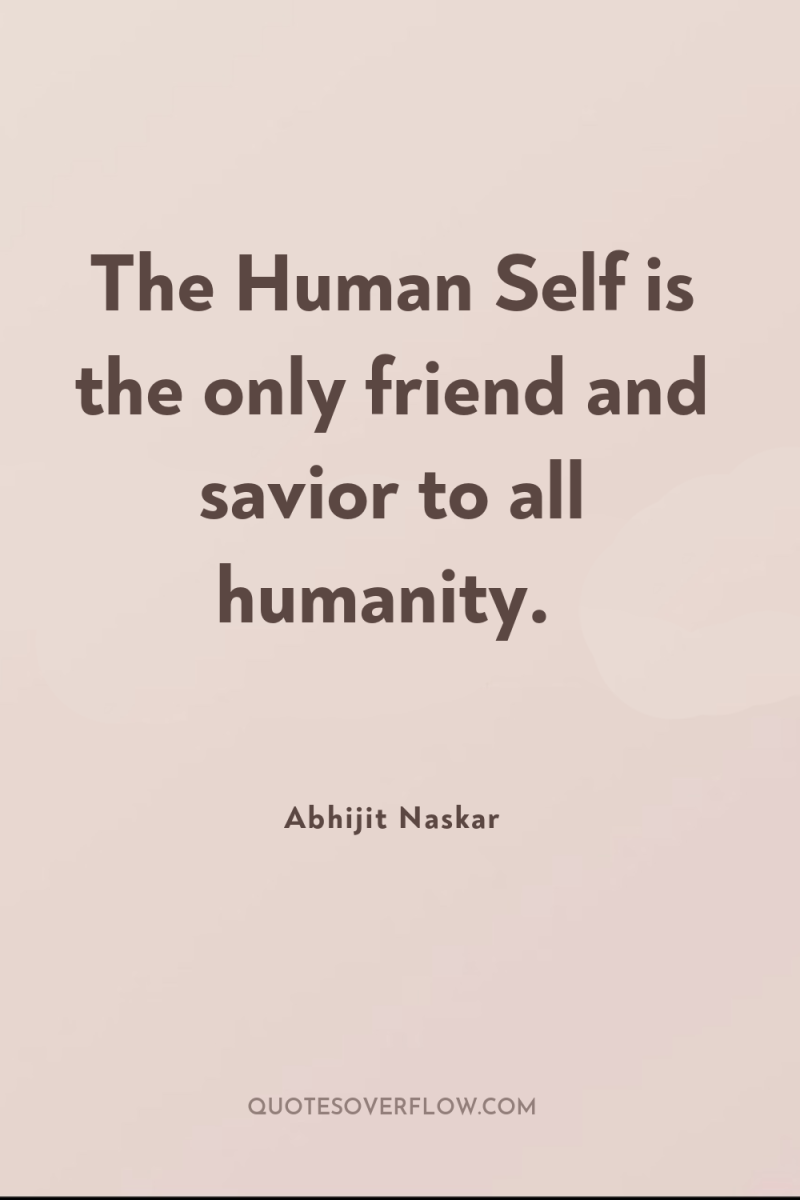
1
The Human Self is the only friend and savior to all humanity.Abhijit Naskar
2
There is no God in Buddha’s teachings. There is no religious ritual in Buddha’s teachings. All that there is, is simple “Karma” or “Work” — that is the “Dhamma” or “Duty” or “Religion” he preached.Abhijit Naskar
3
To just be--to be--amidst all doings, achievings, and becomings. This is the natural state of mind, or original, most fundamental state of being. This is unadulterated Buddha-nature. This is like finding our balance.Lama Surya Das

4
It is not what you can do for your country, but what you can do for all of mankind.Mike Norton
5
The mind which is reluctant to change or alter is "ME and I". The mind which is ready to get empty and altered is "BUDDHA".Aditya Ajmera
6
Meditation brings Nirvana, and Nirvana brings Buddhahood.Abhijit Naskar
7
A revolution in the eyes of man carries purpose. A revolution in the eyes of the awakened carries bliss.Sal Martinez
8
By incorporating him (Buddha) into the domain of Hindu traditions, and by depicting him as a Hindu sage who was a glorious incarnation of Lord Vishnu, the Brahmins attempted to secure their position of authority in the society.Abhijit Naskar
9
The most important and uniquely glorious element of Buddha’s character was that, he did not compel his pupils to be slaves either to his teachings or to himself, but like a conscientious human, demanded from his followers to accept his words not merely out of regard for him but after subjecting them to a thorough examination. And this is where Buddha stands out from the crowd of self-proclaimed prophets.Abhijit Naskar
10
13. A Buddha In Tokyo in th Meiji era there lived two prominent teachers of opposite characteristics. One, Unsho, an instructor in Shingon, kept Buddha's precepts scrupulously. He never drank intoxicants, nor did he eat after eleven o'clock in the morning. The other teacher, Tanzan, a professor of philosophy at the Imperial University, never observed the precepts. When he felt like eating he ate, and when he felt like sleeping in the daytime he slept. One da Unsho visited Tanzan, who was drinking wine at the time, not even a drop of which is supposed to touch the tongue of a Buddhist. "Hello, brother, " Tanzan greeted him. "Won't you have a drink?" "I never drink! " exclaimed Unsho solemnly. "One who never drinks is not even human, " said Tanzan. "Do you mean to call me inhuman just because I do not indulge in intoxicating liquids! " exclaimed Unsho in anger. "Then if I am not human, wht am I?" "A Buddha, " answered Tanzan.Nyogen Senzaki
11
Bells Ring, Drums ResoundWhen a bell is struck it rings, when a drum is beaten it resounds. This is because they are solid outside and empty within. It is because they have nothing inside that they are able to ring and resound. What I realize as I observe this is the Tao of true emptiness and ineffable existence. True emptiness is like the inner openness of a bell or a drum; ineffable existence is like the sounding of a bell or a drum when struck. If people can keep this true emptiness as their essence, and utilize this ineffable existence as their function, ever serene yet ever responsive, ever responsive yet ever serene, tranquil and unstirring yet sensitive and effective, sensitive and effective yet tranquil and unstirring, empty yet not empty, not empty yet empty, aware and efficient, lively and active, refining everything in the great furnace of Creation, then when the dirt is gone the mirror is clear, when the clouds disperse the moon appears; revealing the indestructible body of reality, they transcend yin and yang and Creation, and merge with the eternity of space.Liu Yiming